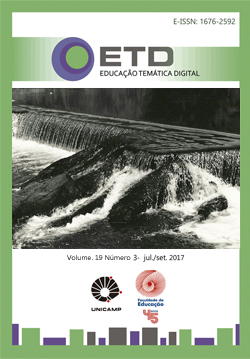Resumen
How can mathematics best contribute to social justice and sustainability? Distributive justice addresses poverty and related problems from the top down: by moving extracted value from private to state ownership. But the history of bureaucratic socialism, from the pollution in the USSR to food shortages in Venezuela, shows just as many problems as capitalism. Generative justice, in contrast, works from the bottom up: replacing value extraction and alienation with value circulation. These generative cycles include unalienated labor, such as that we find in makerspaces and open source; unalienated ecological value such as organic farming, and unalienated expressive value such as sexual diversity, liberated arts, and other polysemic freedoms. This essay will review 3 aspects of ethnosciences (ethnomathematics, ethnocomputing and related disciplines) in relation to generative justice. In the case of indigenous knowledge systems, there is a danger of alienation of value as concepts are translated into models, and further abstracted into classroom curricula. In the case of vernacular knowledge systems, colonization by commercial interests has already occurred, and the challenge is to develop a decolonized alternative. Finally, in the case of school-community relations, a full generative cycle can incorporate economic, health and environmental flows of value by leveraging these generative STEM approaches. This essay will provide both theory and some initial results of this generative STEM approach to a more just and sustainable world.
Citas
BENKLER, Yochai. Practical anarchism: peer mutualism, market power, and the fallible state. Politics and Society, v. 4, n. 2, p. 213-251, 2013.
BENNETT, Audrey. Ethnocomputational creativity in STEAM education: a cultural framework for generative justice. Teknokultura. Journal of Digital Culture and Social Movements, v. 13, 2016. Retrieved from: http://revistas.ucm.es/index.php/TEKN/article/view/52843.
BENNETT, Audrey; EGLASH, Ron; LACHNEY, Michael; BABBITT, William. Design agency: diversifying computer science at the intersections of creativity and culture. In RAISINGHANI, M. (Ed.). Revolutionizing Education through Web-Based Instruction. Hershey, PA: IGI Global, 2016. pp. 35-56.
BENNETT, Audrey; CASSIM, Fatima; VAN DER MERWE, Marguerite; VAN ZIJL, Karen; RIBBENS, M. Designing South African children’s health education as generative play. Proceedings of the International Association of Societies of Design Research, Queensland University of Technology, 2015.
BUECHLEY, Leah; HILL, Benjamin, M. LilyPad in the wild: how hardware’s long tail is supporting new engineering and design communities. Proceedings of Designing Interactive Systems. New York, NY: ACM, 2010. pp. 199-207.
CLUIS, Corinne. Bioprospecting: a new western blockbuster, after the gold rush, the gene rush. The Science Creative Quarterly, v. 8, 2013. Retrieved from: http://www.scq.ubc.ca/bioprospecting-a-new-western-blockbuster-after-the-gold-rush-the-gene-rush/.
EGLASH, Ron; BANKS, David A. Recursive depth in generative spaces: democratization in three dimensions of technosocial self-organization. The Information Society, v. 30, n. 2, p. 106-115, 2014.
EGLASH, Ron, BENNETT, Audrey, O’DONNELL, Casey, JENNINGS, Sybillyn, CINTORINO, Margaret. Culturally situated designed tools: ethnocomputing from field site to classroom. American Anthropologist, v. 108, n. 2, p. 347-362, 2006.
EGLASH, Ron; GARVEY, Colin. Basins of attraction for generative justice. In BANERJEE, Santo, ERÇETIN, Şefika Şule, TEKIN, Ali (Eds.). Chaos Theory in Politics. Netherlands: Springer, 2014. p. 75-88.
EGLASH, Ron. An introduction to generative justice. Teknokultura, v. 13, n. 2. Retrieved from: https://www.researchgate.net/publication/311811471_An_Introduction_to_Generative_Justice. 2016b.
DRAZAN, John F.; COOKE, Laquana; EGLASH, Ron. Harmonious integration: tuning STEM education with generative justice. IEEE Integrated STEM Education Conference. Princeton, NJ: ISEC, 2016. Pp. 58-64. Retrieved from: https://www.researchgate.net/publication/301914824_Harmonious_integration_Tuning_STEM_education_with_generative_justice.
DUNBAR-HESTER, Christina. Freedom from jobs or learning to love to labor? Diversity advocacy and working imaginaries in open technology projects. Teknokultura, v. 13, n. 2, p. 541-566, 2016.
JHALLY, Sut. Cultural studies and the sports/media complex. In WENNER, L. A. (Ed.). Media, sports, and society. Newbury Park, CA: Sage Publications, 1989. pp. 70-96.
LACHNEY, Michael, BENNETT, Audrey, APPIAH, J.; EGLASH, Ron. Modeling in ethnocomputing: replacing bi-directional flows with recursive emergency. International Journal for Research in Mathematics Education, v. 6, n. 1, p. 219-243, 2016a.
LACHNEY, Michael; BABBITT, William; EGLASH, Ron. Content aware software design in the ‘construction genre’ of learning technology. Software Studies, v. 5, Special Issue, 2016b. Retrieved from http://computationalculture.net/article/software-design-in-the-construction-genre-of-learning-technology-content-aware-versus-content-agnostic.
LACHNEY, Michael. Culturally responsive computing as brokerage: toward asset building with education-based social movements. Learning, Media and Technology, p. 1-20, 2016. DOI: 10.1080/17439884.2016.1211679.
LYLES, Dan.; LACHNEY, Michael; FOSTER, Ellen K.; ZATZ, Zoe. Generative contexts: generating value between community and educational settings. Teknokultura, v. 13, n. 3, p. 613-637, 2016.
LIPKA, Jerry; HOGAN, Maureen, P.; WEBSTER, Joan P.; YANEZ, Evelyn; ADAMS, Barbara; CLARK, Stacy; LACY, Doreen. Mathematics in a cultural context: two case studies of a successful culturally based mathematics project. Anthropology & Education Quarterly, v. 36, n. 4, p. 367–385, 2005.
MARX, Karl. Capital. Volume I. New York, NY: Vintage, 1976.
MITCHEL, Melanie. Complexity: a guided tour. New York, NY: Oxford University Press, 2009.
ROSA, Milton; OREY, Daniel Clark. Ethnomodeling as a research theoretical framework on ethnomathematics and mathematical modeling. Journal of Urban Mathematics Education, v. 6, n. 2, p. 62–80, 2013.
ST. JOHN, Warren. Sandlot baseball: diamonds in the rough. Garden & Gun, 2014. Retrieved from: http://gardenandgun.com/article/sandlot-baseball-diamonds-rough.
A ETD - Educação Temática Digital utiliza a licença do Creative Commons (CC), preservando assim, a integridade dos artigos em ambiente de acesso aberto.

